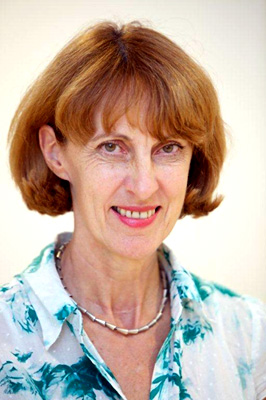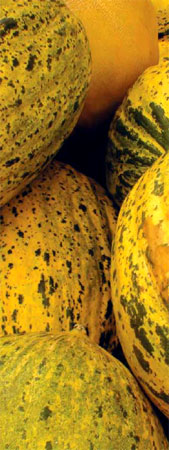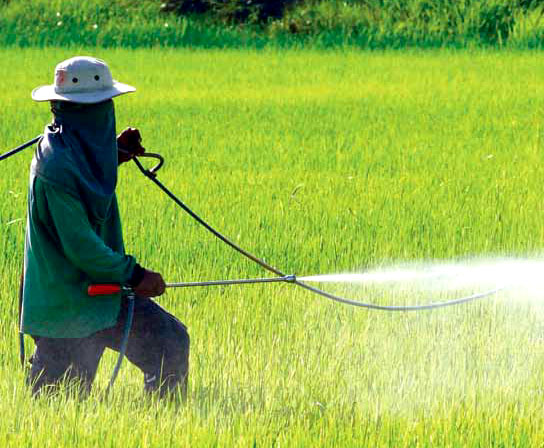European Environment Agency: Greening Our Economy
By Professor Jacqueline McGlade
At first sight, the fate of threatened species might seem a world apart from the economy. Upon closer examination, however, we start to understand the connections between the two. The ‘good health’ of natural systems is a precondition for the ‘good health’ of our social and economic systems. Can one say that a society is thriving when it is exposed to air and water pollution and endures related health problems? Equally, can a society ‘function’ if a large proportion is unemployed or cannot make ends meet?
Despite gaps and uncertainties in our understanding, we can see that our world is changing. After 10,000 years of relative stability, the average global temperature is increasing. Although the European Union’s greenhouse gas emissions are declining, fossil fuels continue to release more greenhouse gases into the atmosphere than our land and oceans can absorb. Some regions are more vulnerable to the potential impacts of climate change – and these are often the countries least prepared to adapt to new climatic conditions.
With more than seven billion of us living on the planet, humans clearly have a role in steering and accelerating this change. In fact, our current consumption and production levels may be damaging the environment to the point that we risk making our home uninhabitable to many species – including ourselves. Many people in developing countries aspire to have lifestyles similar to those in developed countries, which could put additional pressure on our natural systems.
These rapid global changes mean that we are losing global biodiversity at a rate never before seen in history. Extinction rates may be up to 1,000 times higher than the historical background rate. The destruction of habitats is one of the main reasons.
Although the total forest area has been increasing in Europe in recent decades, globally it is a different story. The United Nations Food and Agriculture Organization estimates that every year about 13 million hectares of the world’s forests (roughly equivalent to the size of Greece) are cut down and converted to other land uses, such as cattle grazing, mining, farming or urban development. Forests are not the only ecosystems under threat. Many other natural habitats are at risk because of human activities.
The Way Forward: Inclusive Green Economy
When the primary day to day concern of billions is putting food on the table and sending their children to school in the hope of a better future, it may be almost impossible for many to avoid grasping short term solutions. This means people need better opportunities.
It is clear that our economic activities require natural resources. But what might be perceived as a dilemma — a choice between preserving the environment and developing the economy – is actually misleading. In the long term, economic and social development necessitates sustainable management of natural resources.
At the end of 2011, one in ten people was unemployed in the European Union. This figure was more than one out of five for young people. Unemployment puts severe strains on individuals, families and the society as a whole. Nearly one quarter of the EU population was at risk of poverty or social exclusion in 2010. The global poverty rates are even higher.
Our current economic models fail to account for many of the benefits a healthy environment provides us. Gross domestic product (GDP) – the economic indicator most commonly used to convey a country’s level of development, standard of living and status relative to other countries – is based on the value of economic output. It does not include the social and human price we pay for the side effects of economic activity, such as air pollution. On the contrary, the health services provided to those suffering from respiratory diseases is included as a positive contribution to GDP.
The challenge is to find out how we can redesign our economic models so that we can generate growth and improve the quality of life across the world without damaging the environment, while also protecting the interests of future generations. The solution has been termed ‘the green economy’.
Although it seems a simple concept, translating the idea into reality is much more complicated. Clearly, it will require technological innovation. But it requires lots of other changes, too – to the way we organise businesses; the way that we design cities; the way we move people and goods around; the way we live, essentially.
If we were to put it in business terms, we need to ensure long term sustainability in all our domains of wealth creation: natural capital, human capital, social capital and manufactured capital, as well as financial capital. The concept of green economy could also be explained through these distinct but interlinked capitals.
In evaluating the costs and benefits of our decisions, we need to look at the impacts on all capital stocks. Investments in roads and factories may increase our manufactured capital but they can actually undermine our overall wealth if they imply destroying our forests (part of our natural capital) or damaging public health (part of human capital).
Opportunities Ahead
Changing the way we live, produce and consume actually opens a new world of opportunities. We recently published Signals 2012 which gives an overview of where we stand today, exactly 20 years after the 1992 Earth Summit in Rio de Janeiro, Brazil. It looks into how the economy and the environment are linked and why we need to ‘green’ our economy. It also gives a glimpse of the large variety of opportunities available.
There is no single solution that will help us make a quick transition or one that fits all. For example, while there may be common overall goals to manage waste effectively, Greenland’s waste management might need to address a completely different reality on the ground than Luxembourg’s.
Timing plays a crucial role. Today, we need solutions that address the environmental problems at hand with today’s technology, bearing in mind that our policies and business decisions will have to be continuously improved and adapted to keep up with our growing understanding of the environment and technological developments. But there are many solutions already out there. And many more are on the way.
A Question of Choices
Ultimately, it will be a question of choices – policy choices, business choices and consumer choices. But how do we choose the best option?
Do we have the information and the tools we need to develop appropriate policies? Are we addressing the issue at the ‘right’ level? Do we have the ‘right’ incentives or market signals to invest in renewable energies? Do we have the ‘right’ information or labels on the goods we are buying so we can opt for the greener alternative?
What we know and when we acquire this knowledge will be instrumental in helping different communities to make their ‘right’ choices. Ultimately, knowledge will empower us to come up with our solutions and create new opportunities by sharing them with others.
About the Author
 Professor Jacqueline McGlade became Executive Director in June 2003 and is currently on leave from her post as Professor in Environmental Informatics in the Department of Mathematics at University College London.
Professor Jacqueline McGlade became Executive Director in June 2003 and is currently on leave from her post as Professor in Environmental Informatics in the Department of Mathematics at University College London.
Prior to this, she was Director of the Centre for Coastal and Marine Sciences of the UK Natural Environment Research Council, Professor of Biological Sciences at the University of Warwick, Director of Theoretical Ecology at the Forschungszentrum Jülich and Senior Scientist at the Bedford Institute of Oceanography in the Federal Government of Canada.
Her research is focused on the governance of resources and environmental informatics with particular reference to ecosystems, marine resources and climate change. She has over 200 peer-reviewed papers, articles, books and legal submissions and has produced and presented a number of TV and radio series and programmes plus three feature films. She has been awarded international prizes and honours from Czech Republic, Germany, Italy, Monaco, Romania, Sweden, UK and the USA.
Professor McGlade has held a number of key advisory roles and chairs at national level, including Trustee of the Natural History Museum and Board Member of the Environment Agency, at European level, including the European Bank for Reconstruction and Development, and at international levels including for the United Nations and the Consultative Group on International Agriculture Research.
About European Environment Agency (EEA)
The European Environment Agency is an agency of the European Union. EEA’s task is to provide sound, independent information on the environment. It is a major information source for those involved in developing, adopting, implementing and evaluating environmental policy, and also the general public. Currently, the EEA has 32 member countries.
You may have an interest in also reading…
Q&A with Michael Glinski, CEO of Porsche Schweiz: Alternative Fuels, an Unbroken Legacy, and a Sports Car’s Place in the Modern World
Porsche: it’s always been a ‘dream’ car. But what does the future hold for the famous marque in the years
Lord Waverley and Paul Baker: The Promise, Potential and Pitfalls of Britain’s Relationship with Africa
The concept of Africa Rising is truer today than ever. Despite the pandemic disruption that has caused the continent’s first
India in a Strong Position to Tap Global Growth
Unlike most developing countries, India’s recent growth has been well below potential, which provides space for economic activity to accelerate





















































































